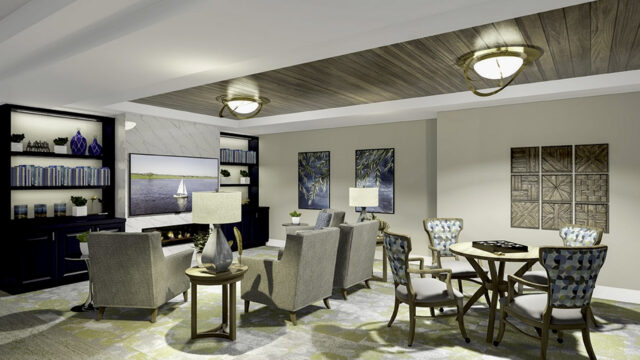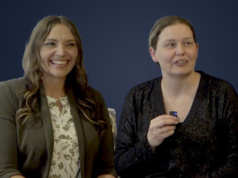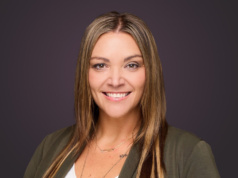Suzanne is joined by Ignacio Lopez III, CDP, dementia resident expert at MorningStar Senior Living’s new standalone memory care community, MorningStar at West Valley in San José, California. The community will have a dedicated art studio, fitness studio, living areas, two dining rooms, and a sky terrace. The Lavender Sky approach is to serve them, enter their world and embrace them where they are. The community is set up for person-centric care. It is scheduled to open in January and is now taking reservations, with Founder’s Club members having many perks.
Follow the link to learn more about MorningStar at West Valley. Their information center is located at 3920 Williams Rd, Suite B, San José, CA.
Welcome back, everyone, to Answers for Elders Radio Network with the Lavender Sky team that focuses on Alzheimer’s dementia of MorningStar Senior Living. And we’ve just been introduced to an amazing program that started our segment off this hour, and we are going to move on to this amazing gentleman, which is Mr Ignacio Lopez. And Ignacio, you are kind of the dementia resident expert quote unquote of a brand new community going in in Northern California. So Ignacio, welcome to this segment of Answers for Elders. I’m excited to learn about your community.
– Well, thank you for having us. And yes, my community is a MorningStar Senior Living community. We are a standalone memory care community in Northern California for MorningStar. We’re located in San Jose at 3930 Williams Road. Our information center is also here next to our community that’s getting built, and we’re excited about our community because we are embracing our residents as a whole. What sets us apart from other communities is that we actually have dedicated spaces for our residents. As you can see behind me the renderings. We have a dedicated art studio, We have a dedicated fitness center. We have multiple living areas. We have two dining rooms, so a resident doesn’t have to be constrained to one place to eat. They can go up the elevator, they can go down the elevator if they have the cognitive ability to do so, and pick wherever they want to wherever they want to have their meal. We also have a wonderful sky terrace, which is an amazing feature to our community. There’s gonna be umbrellas with chairs out there. If a family member wants to have a dinner al fresco outside, we can set them up outside like like an a fancy restaurant. We want a resident’s experience with us to be the best. Basically a cruise ship on land. That’s what we wanted to be. Our residents are not going to be confined to one common space like most of the competitors that I have around me — you’re in the one room and everybody’s doing the same thing. We’re not going to do that.
– It’s so important to keep the mind active, that they’re making choices every minute, every day, even if it’s as simple as I’m gonna go to this area to paint, as opposed to do something. It’s making those choices helps them work their mind. I’m sure that’s the strategy behind all this, is it not?
– Absolutely. With our Lavender Sky, our approach is that we enter their world. We’re there to serve them. Okay, so if they want to do something, we’re not going to say no, no, we’re doing this right now. No. No, We’re gonna go with them on their little journey. We’re gonna go with they what they want to do. We’re gonna have staffing to do that, you know. So we enter their world, we go with them, We embrace them for their individuality, we embrace them for what they are, and you know, and we explore the world with them, you know, And that’s that’s by having person-centered care I know, everybody says person centered care, they have their own way of packaging it. But, with our community, the way our community is set up, that’s exactly what we can do, because anybody can say person-centered care, but if everybody’s in one room, they’re not doing person-centric care.
– And here’s the other thing that I think is important for families to hear. No matter how advanced somebody has Alzheimer’s dementia, that relationship that you have with your loved one, whether it’s grandfather and granddaughter, whether it’s mother and son or father and daughter, whatever, that is the most important thing you can do for that loved one is keep that relationship consistent. I think a lot of times what happens is that we take too much on as family members. We tend to step into the “parenting’ role, which doesn’t work. I know I learned the hard way. I couldn’t even go to a doctor appointment, you know, and I would speak up for my mom, and she’d get angry with me because I was the daughter and she was the parent. My mom was a very, um “you speak when it’s appropriate.” That never changed. I can remember times what I took her out to a restaurant when she had advanced dementia, and we went to a Chinese restaurant. She loved Chinese food. Here she yelled at some guy that was wearing a baseball cap inside, because it was not appropriate for men to wear hats inside. I didn’t know how to handle it at the time. I was embarrassed and I didn’t realize that I could have handled things in a better way. And I think one of the resources is not only for you, for an organization like you to have the support network of the senior or the individual that has Alzheimer’s, but it’s also the support and education that you’re giving families. And that to me is so valuable and certainly was. It was my lifeline as I was learning along the way caring for my mom, because I learned, now, wow, you know, I could put this in a different way, or I don’t have to be accurate all the time with people. It’s like the professionals: they know — if mom says on a scale from one to ten, what’s your pain level, and she always says three because that’s all they know — they know that they’re in more pain. But the idea is is that I don’t have to do it for them, and I can stay the daughter, or I can stay the son or the grand grandchild. And I think that’s one of the things that’s so valuable about a program like yours.
– Absolutely, that’s one of the major things that we do with families is educate them on the disease. You know, we’re the professionals. We want you to come visit, and we want you to come visit as a son. We want you to come visit as a daughter. We wanted you to come visit as a spouse, not as a caregiver. Let us take care of that. Enjoy your time while you’re here, and when you’re gone, rest assured that your loved one is well taken care of.
– And I think too, as you know you’ve brought up spouses. It’s so difficult for a spouse to walk that line of caring for their significant other, but they’re in a situation where they oftentimes give up their entire life because they don’t have the ability to live a quality life. And one of the things that I’ve always encouraged with families, you have a right to a quality of life too, and finding that balance between that that significant other, that’s a that’s a caregiver that’s throwing their life into caring for their loved one is admirable, but it also isn’t good in the long term. I mean, how many times have we seen loved ones get strokes or just be overwhelmed because they are pushing themselves too far in things. And I think that’s the service that you guys really offer, is quality of life for both.
_ Absolutely. A perfect example of this is, we just had our monthly adult caregiver support group for family members who take care of their loved ones at home that suffer from dementia, and a gentleman came, and he was distraught. His main concern was that my wife recognizes my sons, but she doesn’t recognize me. Every day I have to tell her who I am because she’s scared of me. She picks up the phone and calls my kids and says, hey, who is this man here with me? It’s an education moment. She remembers you like the hottie you were in college. He said that they met in college, and then it was a wonderful romance. And I said, well that’s who she remembers. So it wouldn’t be bad to carry a picture and say, hey, look this is us in college. I’m your husband. You’re safe with me, we just age, you know, and go to a mirror and show both of the reflections and say, hey, this is us, but you know, don’t force her to sit with you, or don’t grab her hand, don’t force her, but just go with her on a little journey and try to see where we’re gonna go with this. And the kids called mom to say, Mom, that’s dad. You know, you’ve been married for 60 years, and she’ll calm down, but she still won’t want to say, well, who’s that man. So he was really distraught about that. So we give him a little bit of education, a tool that he could use and he just called yesterday saying that it was working.
– I think when when you’re really looking at the whole picture dynamic of a family, there’s a lot of things that the children need to understand, too, because a child comes from out of town and says, why is there this big fuss over dad? He seems perfectly normal to me, but Dad’s going to be very different with mom or somebody else. So understanding that there is a there’s a dynamic in place that happens with families and helping the family. I think one of the biggest challenges that I found is bringing all the family members together on a common goal, because everybody has their different interpretation. And I’m sure with your caregiver support groups that’s huge. So Ignacio, we have about two minutes left. Tell us a little bit about your community where you’re located. Then whence you’re protected over opening?
– Okay my community is in northern California, San Jose, California. Our specific address is 3930 Williams Road in San Jose and our information center is right next to the building, where we can give you a virtual tour. We can show you everything about our community, what makes us special and different from other communities. And we are scheduled to open in January, late January. But we are taking reservations. We are making members of our Founders Club, and our Founder’s Club members get many perks. So if anyone out there needs our services, please reach out. I can be reached wvalley.ed@mstarliving.com, or you can go to our website.
– Well, I’m excited to learn more and hopefully we’ll get a chance to go down and and view your amazing community. And I have no doubt this Sunday, MorningStar may be up here in the Pacific Northwest too, we never know, since you guys are doing so amazingly well and you’re such a valuable resource.The mission behind what MorningStar does and all of the different aspects of who you are I think is really so impressive.
In our next segments, the last half of our hour, we’re talking with the director of the Lavender Sky program, a real philosophy behind Alzheimer’s, and dementia, and working with families, and everyone. I hope you stay with us for the hour, and I’m going to be back very soon with Rebecca Martin.














